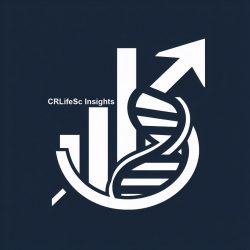In an era of globalization, English has emerged as the universal language that bridges gaps and facilitates communication across diverse industries. One such sector where the importance of English cannot be overstated is the pharmaceutical industry. This article explores the multifaceted role of English in pharmaceutical research, development, regulation, and global market penetration.
- Global Collaboration in Research and Development:
English as the Lingua Franca:
The pharmaceutical industry thrives on innovation and collaborative research. English serves as the lingua franca that connects scientists, researchers, and healthcare professionals from around the world. Whether it’s sharing research findings, discussing clinical trial results, or collaborating on drug development, a common language is crucial for seamless communication and the exchange of critical information.
Open Access Journals and Publications:
Most scientific journals and publications are in English, making it imperative for professionals in the pharmaceutical field to be proficient in the language. Access to the latest research and staying abreast of developments in the industry often require a strong command of English, fostering a global community of researchers and practitioners.
- Regulatory Compliance and Documentation:
Standardization of Documentation:
In the pharmaceutical sector, compliance with rigorous regulatory standards is non-negotiable. Regulatory authorities, such as the FDA (Food and Drug Administration) and the EMA (European Medicines Agency), require comprehensive documentation for drug approval. English is the standard language for preparing regulatory submissions, ensuring uniformity and clarity in the review process.
Harmonization Efforts:
International organizations, such as the International Council for Harmonisation of Technical Requirements for Pharmaceuticals for Human Use (ICH), work towards harmonizing regulatory requirements globally. English is the language adopted for ICH guidelines and recommendations, facilitating a streamlined approach to drug development and regulatory compliance across borders.
- Clinical Trials and Patient Communication:
Informed Consent and Patient Information:
In the realm of clinical trials, obtaining informed consent from participants is a critical ethical consideration. Consent forms and patient information documents are predominantly prepared in English. Clear communication with study participants is essential for ethical research practices, and English plays a pivotal role in achieving this clarity.
Multinational Clinical Trials:
Pharmaceutical companies often conduct multinational clinical trials to ensure the diversity and representativeness of study populations. English becomes the common language for communication among researchers, investigators, and trial participants, facilitating the smooth execution of these trials.
- Marketing and Market Access:
Global Marketing Strategies:
Once a pharmaceutical product is ready for market entry, effective communication becomes paramount. English is the language of choice for developing global marketing strategies. From promotional materials to advertisements, the ability to convey the benefits and risks of a drug accurately requires a nuanced understanding of English to resonate with diverse audiences.
Access to Global Markets:
English proficiency is a gateway to global markets. Pharmaceutical companies looking to expand their reach must navigate regulatory landscapes, negotiate partnerships, and engage in business transactions—activities where English proficiency is a prerequisite for success. English is not only the language of science but also the language of international business.
- Networking, Conferences, and Professional Development:
International Conferences and Symposia:
The pharmaceutical industry is dynamic, with continuous advancements and breakthroughs. Professionals in the field regularly participate in international conferences and symposia to share knowledge and network with peers. English is the medium of communication at these events, fostering collaboration, and enabling the exchange of ideas on a global scale.
Professional Collaboration and Networking:
English proficiency enhances professional collaboration and networking opportunities. Whether forging partnerships with academia, engaging in collaborative research projects, or participating in industry associations, the ability to communicate effectively in English opens doors to a broader professional network.
Conclusion:
In conclusion, the pharmaceutical industry operates in a global landscape where effective communication is the cornerstone of success. English, as the universal language of science and commerce, plays an indispensable role in the various facets of pharmaceutical research, development, regulation, and market access. As the industry continues to evolve, proficiency in English will remain a key competency for professionals seeking to make meaningful contributions and advancements in this crucial field.
If you are interested in enhancing your English language skills in the Pharmaceutical Industry click on English course for the Pharmaceutical Industry.


